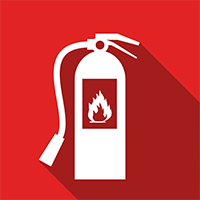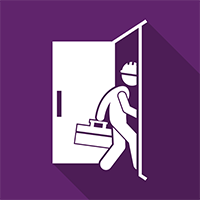-
 The Health and Safety (Display Screen Equipment) Regulations contain special directives covering DSE safety. Both employers and employee‐users have responsibilities under the legislation So what do we mean by display screen equipment? The first thing most people think of is a computer monitor. But that’s not the only thing it refers to display screen equipment could also mean laptops, tablet PCs, televisions, smartphones, CNC control pads, portable diagnostic screens or equipment containing cathode ray tubes, or CRTs. Our Display Screen Equipment Awareness E-Learning course is aimed at users of display screen equipment (DSE) and those responsible for assessing display screen equipment. A ‘user’ is anyone who regularly uses display screen equipment for a significant part of their normal work. In practice, if you use display screen equipment continuously for more than one hour a day, then you’re a ‘user’. This Online Display Screen Equipment Awareness E-Learning course fulfils your statutory training obligations and covers, among other things; the correct way to set up and use your display screen equipment safely. Reducing the risk of work related conditions.
The Health and Safety (Display Screen Equipment) Regulations contain special directives covering DSE safety. Both employers and employee‐users have responsibilities under the legislation So what do we mean by display screen equipment? The first thing most people think of is a computer monitor. But that’s not the only thing it refers to display screen equipment could also mean laptops, tablet PCs, televisions, smartphones, CNC control pads, portable diagnostic screens or equipment containing cathode ray tubes, or CRTs. Our Display Screen Equipment Awareness E-Learning course is aimed at users of display screen equipment (DSE) and those responsible for assessing display screen equipment. A ‘user’ is anyone who regularly uses display screen equipment for a significant part of their normal work. In practice, if you use display screen equipment continuously for more than one hour a day, then you’re a ‘user’. This Online Display Screen Equipment Awareness E-Learning course fulfils your statutory training obligations and covers, among other things; the correct way to set up and use your display screen equipment safely. Reducing the risk of work related conditions. -
 Electricity is the lifeblood of modern society, it enhances our quality of life and we are becoming increasingly reliant on it to power tools and devices we use for work and entertainment. However, although electricity has many benefits it can also be a hidden killer as it can’t be seen, felt, smelled or heard until someone comes into contact with it. This online Electrical Safety E-Learning course will start by covering the many benefits electricity brings to society and its key components voltage, current, and resistance. The Electrical Safety online course will explain the two main types of electricity, cover UK accident and death statistics, and describe a simple way of remembering the electrical hazards. The online Electrical Safety course then goes on to provide basic instructions about how you could safely help someone you suspect has received an electric shock. Towards the end of the Electrical Safety E-Learning course it includes an overview of the main standards, guidance and legislation that control the use of electricity in the workplace, and finish off by looking at simple maintenance plans and portable appliance testing including who within an organisation would be best to carry out the various checks. Training staff in Electrical Safety is vital to protect your employees and allow them to understand their role and responsibilities regarding Electrical Safety in the workplace. IIRSM approval means that this course can be used in the future by those that need to prove they are continually developing themselves.
Electricity is the lifeblood of modern society, it enhances our quality of life and we are becoming increasingly reliant on it to power tools and devices we use for work and entertainment. However, although electricity has many benefits it can also be a hidden killer as it can’t be seen, felt, smelled or heard until someone comes into contact with it. This online Electrical Safety E-Learning course will start by covering the many benefits electricity brings to society and its key components voltage, current, and resistance. The Electrical Safety online course will explain the two main types of electricity, cover UK accident and death statistics, and describe a simple way of remembering the electrical hazards. The online Electrical Safety course then goes on to provide basic instructions about how you could safely help someone you suspect has received an electric shock. Towards the end of the Electrical Safety E-Learning course it includes an overview of the main standards, guidance and legislation that control the use of electricity in the workplace, and finish off by looking at simple maintenance plans and portable appliance testing including who within an organisation would be best to carry out the various checks. Training staff in Electrical Safety is vital to protect your employees and allow them to understand their role and responsibilities regarding Electrical Safety in the workplace. IIRSM approval means that this course can be used in the future by those that need to prove they are continually developing themselves.Electrical Safety Modules
Overview and Benefits of Electricity What is Electricity? How Electricity Can Cause Harm Legislation, Standards and Key Steps PAT Testing Standards and Guidance Approved by IIRSM – Duration 45 mins* -
 This course will give you an overview of epilepsy. It lists the methods of diagnosis, what a seizure is and how the brain can be affected. It will introduce some possible seizure triggers and describe what to do when someone has a seizure. It will also discuss some of the treatments offered to people with epilepsy and provide practical advice on what you can do if you witness someone having a seizure. Approved by CPD – Duration 30 mins*
This course will give you an overview of epilepsy. It lists the methods of diagnosis, what a seizure is and how the brain can be affected. It will introduce some possible seizure triggers and describe what to do when someone has a seizure. It will also discuss some of the treatments offered to people with epilepsy and provide practical advice on what you can do if you witness someone having a seizure. Approved by CPD – Duration 30 mins* -
 Current legislation, The Regulatory Reform (Fire Safety) Order 2005, applies to all workplaces regardless of the number of employees and requires employers to provide adequate training in fire awareness for all staff members. Our Online Fire Extinguisher training course aims to give all employees a basic introduction to identifying the different types of extinguisher available, determining which is the best extinguisher for the fire and the protocol of extinguishing a fire. This Fire Extinguisher E-Learning Course provides training in the use of different fire extinguishers and the protocol of tackling a fire. It is a cost-effective way for employers to fulfil their legal obligation to provide their employees with the necessary understanding of fire extinguishers. Candidates can progress through the modules at their own pace and in their own time to fit the training in around their work and personal life. The Online Fire Extinguisher E-Learning course is approved by leading industry bodies: The Institute of Hospitality, IIRSM, Gatehouse Awards & CPD.
Current legislation, The Regulatory Reform (Fire Safety) Order 2005, applies to all workplaces regardless of the number of employees and requires employers to provide adequate training in fire awareness for all staff members. Our Online Fire Extinguisher training course aims to give all employees a basic introduction to identifying the different types of extinguisher available, determining which is the best extinguisher for the fire and the protocol of extinguishing a fire. This Fire Extinguisher E-Learning Course provides training in the use of different fire extinguishers and the protocol of tackling a fire. It is a cost-effective way for employers to fulfil their legal obligation to provide their employees with the necessary understanding of fire extinguishers. Candidates can progress through the modules at their own pace and in their own time to fit the training in around their work and personal life. The Online Fire Extinguisher E-Learning course is approved by leading industry bodies: The Institute of Hospitality, IIRSM, Gatehouse Awards & CPD.Fire Extinguisher Modules
Fire Extinguishers Pre-Engagement Action Using a Fire Extinguisher Approved by Institute of Hospitality, IIRSM, Gatehouse Awards & CPD – Duration 25 mins* -
 Current legislation, The Regulatory Reform (Fire Safety) Order 2005, applies to all workplaces regardless of the number of employees and requires employers to provide adequate training in fire awareness for all members of their staff. Our Online Fire Marshal training courses are aimed at all employees to assist them in identifying and reducing the risk that fire presents in the workplace. Fire marshals (sometimes known as fire wardens) are civilians trained to assist in emergency fire evacuation procedures at businesses and other organizations. It is a legal obligation that workplaces must have sufficient fire marshals to deal with fire emergencies. This Fire Marshal E-Learning training course provides extensive knowledge of fire prevention, evacuation protocol and using fire extinguishers. It is a cost-effective way for employers to fulfil their legal obligation to provide their employees with the necessary understanding of fire awareness. Candidates can progress through the modules at their own pace and in their own time to fit the training in around their work and personal life. The Fire Marshal E-Learning course is approved by leading industry bodies: The Institute of Hospitality, IIRSM, Gatehouse Awards & CPD Please note, this course also contains all of the content in the Basic Fire Awareness and Fire Extinguisher courses.
Current legislation, The Regulatory Reform (Fire Safety) Order 2005, applies to all workplaces regardless of the number of employees and requires employers to provide adequate training in fire awareness for all members of their staff. Our Online Fire Marshal training courses are aimed at all employees to assist them in identifying and reducing the risk that fire presents in the workplace. Fire marshals (sometimes known as fire wardens) are civilians trained to assist in emergency fire evacuation procedures at businesses and other organizations. It is a legal obligation that workplaces must have sufficient fire marshals to deal with fire emergencies. This Fire Marshal E-Learning training course provides extensive knowledge of fire prevention, evacuation protocol and using fire extinguishers. It is a cost-effective way for employers to fulfil their legal obligation to provide their employees with the necessary understanding of fire awareness. Candidates can progress through the modules at their own pace and in their own time to fit the training in around their work and personal life. The Fire Marshal E-Learning course is approved by leading industry bodies: The Institute of Hospitality, IIRSM, Gatehouse Awards & CPD Please note, this course also contains all of the content in the Basic Fire Awareness and Fire Extinguisher courses.Fire Marshal Modules
Chemistry of Fire Common Causes of Fire Basic Safety Features in Buildings Introduction to Fire Extinguishers What to do in Cases of Fire? Fire Statistics Current Fire Safety Legislation Fire Risk Preventative Measures Safety Features within Buildings Role of the Fire Marshal Action on Fire Discovery Fire Drills and Evacuation Fire Extinguishers Pre-Engagement Action Using a Fire Extinguisher Approved by Institute of Hospitality, IIRSM, Gatehouse Awards & CPD – Duration 220 mins* -
 We have an obligation to undertake an Individual Risk Assessment for any individuals with additional needs who work for us or attend our facilities. Our FREE template and guidance notes will enable you to sit down with the individual, or their parent/carer, and undertake a Risk Assessment to assist in providing the most appropriate care.
We have an obligation to undertake an Individual Risk Assessment for any individuals with additional needs who work for us or attend our facilities. Our FREE template and guidance notes will enable you to sit down with the individual, or their parent/carer, and undertake a Risk Assessment to assist in providing the most appropriate care. -
 One in four people in the UK will have a mental health problem at some point. While mental health problems are common, most are mild, tend to be short-term and are normally successfully treated, with medication, by a GP. Mental health is about how we think, feel and behave. Anxiety and depression are the most common mental health problems. They are often a reaction to a difficult life event, such as bereavement, but can also be caused by work-related issues. In 2017, the government commissioned Lord Stevenson and Paul Farmer (Chief Executive of Mind) to independently review the role employers can play to better support individuals with mental health conditions in the workplace. The ‘Core Standards’ recommend employers of all sizes can and should put in place:
One in four people in the UK will have a mental health problem at some point. While mental health problems are common, most are mild, tend to be short-term and are normally successfully treated, with medication, by a GP. Mental health is about how we think, feel and behave. Anxiety and depression are the most common mental health problems. They are often a reaction to a difficult life event, such as bereavement, but can also be caused by work-related issues. In 2017, the government commissioned Lord Stevenson and Paul Farmer (Chief Executive of Mind) to independently review the role employers can play to better support individuals with mental health conditions in the workplace. The ‘Core Standards’ recommend employers of all sizes can and should put in place:- Produce, implement and communicate a mental health at work plan that promotes good mental health of all employees and outlines the support available for those who may need it
- Develop mental health awareness among employees by making information, tools and support accessible
- Encourage open conversations about mental health and the support available when employees are struggling, during the recruitment process and at regular intervals throughout employment, offer appropriate workplace adjustments to employees who require them
-
 The General Data Protection Regulation (GDPR) is designed to strengthen and unify data protection principles for all individuals within the European Union and the European Economic Area. The GDPR is an incredibly important change to data privacy regulations. Understanding its correct implementation is vital for all UK businesses and organisations, particularly for staff who regularly deal with personal data. This online Introducing GDPR E-Learning course is designed specially for those front line staff and provides a clear introduction to the main elements of the GDPR, including compliance and the consequences of non-compliance. The Introducing GDPR e-learning course explains the roles of key players – Data Protection Officers, Data Controllers, Data Protection Leads and Data Processors and covers the main categories of personal data, along with the six lawful bases for processing data, and how to audit the data your organisation holds. Other topics examined include the Seven Principles of the GDPR and the Eight Rights for Individuals, along with the importance of your Privacy Policy – how to construct one, and how to use it effectively when dealing with data subjects. Finally, there’s important information on data breaches; how to avoid them, what to do if one is discovered and how to file a breach report.
The General Data Protection Regulation (GDPR) is designed to strengthen and unify data protection principles for all individuals within the European Union and the European Economic Area. The GDPR is an incredibly important change to data privacy regulations. Understanding its correct implementation is vital for all UK businesses and organisations, particularly for staff who regularly deal with personal data. This online Introducing GDPR E-Learning course is designed specially for those front line staff and provides a clear introduction to the main elements of the GDPR, including compliance and the consequences of non-compliance. The Introducing GDPR e-learning course explains the roles of key players – Data Protection Officers, Data Controllers, Data Protection Leads and Data Processors and covers the main categories of personal data, along with the six lawful bases for processing data, and how to audit the data your organisation holds. Other topics examined include the Seven Principles of the GDPR and the Eight Rights for Individuals, along with the importance of your Privacy Policy – how to construct one, and how to use it effectively when dealing with data subjects. Finally, there’s important information on data breaches; how to avoid them, what to do if one is discovered and how to file a breach report.Introducing GDPR Modules
Introduction Data Processing Types of Data Data Subjects’ Rights Data Breaches Approved by CPD – Duration 60 mins* -
 This course aims to provide a gentle introduction to the expectations of the Early Years Foundation Stage and it can also act as a refresher for those wanting to update their knowledge. It will introduce you to some of the key documents and legislation that relate to Early Years providers, the process for registering with Ofsted and the various policies and procedures that need to be in place. It also covers learning and development requirements, how to observe and assess the progress of children in your care and the safeguarding and welfare requirements laid out in the EYFS Framework. Approved by CPD – Duration 60 mins*
This course aims to provide a gentle introduction to the expectations of the Early Years Foundation Stage and it can also act as a refresher for those wanting to update their knowledge. It will introduce you to some of the key documents and legislation that relate to Early Years providers, the process for registering with Ofsted and the various policies and procedures that need to be in place. It also covers learning and development requirements, how to observe and assess the progress of children in your care and the safeguarding and welfare requirements laid out in the EYFS Framework. Approved by CPD – Duration 60 mins* -
 Every day, thousands of people are exposed to situations where they are left alone in work premises, when visiting members of the public during their working day, or working from home. There are many risks associated with working in isolation, without the support of colleagues. These risks can include accidents and violence. This online Introduction to Personal Safety for Lone Workers course acts as an introduction to personal safety for lone workers and applies to those that work alone within business premises, mobile workers and homeworkers. This Introduction to Personal Safety for Lone Workers online course covers the legal responsibilities of both employers and employees, some of the common security precautions that can be implemented, practical steps you can take to avoid conflict in lone worker situations and other elements that can contribute to lone worker safety.
Every day, thousands of people are exposed to situations where they are left alone in work premises, when visiting members of the public during their working day, or working from home. There are many risks associated with working in isolation, without the support of colleagues. These risks can include accidents and violence. This online Introduction to Personal Safety for Lone Workers course acts as an introduction to personal safety for lone workers and applies to those that work alone within business premises, mobile workers and homeworkers. This Introduction to Personal Safety for Lone Workers online course covers the legal responsibilities of both employers and employees, some of the common security precautions that can be implemented, practical steps you can take to avoid conflict in lone worker situations and other elements that can contribute to lone worker safety.Introduction to Personal Safety for Lone Workers Modules
Lone Worker Personal Safety: The Basics The Law: Responsibilities Assessing the Risks Personal Safety Solutions Practical Tips to Avoid Conflict Reporting and Recording Incidents Approved by IIRSM & IOSH - Duration 45 mins* -
 At the end of this course, candidates will have an understanding of what a risk assessment is and how to complete one. To achieve this the course will define important terms, provide some basic background information to explain how important risk assessments are and discuss some of the legislation that applies. It will then go on to provide practical advice on how to identify hazards and analyse risk before finishing off by explaining the responsibilities of both employers and employees with regards to risk assessment. Approved by IIRSM & CPD- Duration 90 mins*
At the end of this course, candidates will have an understanding of what a risk assessment is and how to complete one. To achieve this the course will define important terms, provide some basic background information to explain how important risk assessments are and discuss some of the legislation that applies. It will then go on to provide practical advice on how to identify hazards and analyse risk before finishing off by explaining the responsibilities of both employers and employees with regards to risk assessment. Approved by IIRSM & CPD- Duration 90 mins*

